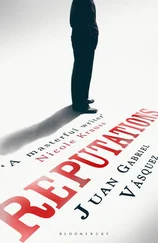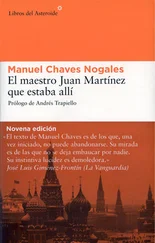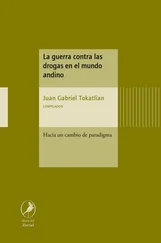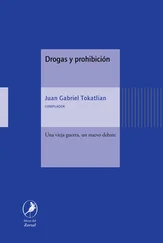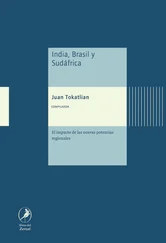“Are you all right?”
“I’ll get over it,” said Oliveira.
“Do you want to come in? A cup of tea, or something hot, would do you good.”
Oliveira shook his head.
“I have to get going.”
“But you’re not going to drive like that, it’s dangerous,” the woman said.
Oliveira saw she wasn’t smiling: her voice was more pleading than polite.
“Half an hour more, half an hour less,” she added. “Wherever it is you’re going, it’s not going to make any difference.”
—
WHEN OLIVEIRA TOLD HER that all of that, the stables and every mare and every stallion, the livery and the right to use it, the two hectares of arable land surrounding the large house, could have belonged to him and he had renounced it all, Agatha’s hands flew to her head and she called him crazy, foolish, deranged. Then Oliveira heard himself explaining his father’s life with indifference that wasn’t exactly genuine and without too many details — but touching on the subject, even if only in monosyllables and short phrases, was already a rarity — speaking about the man who was the master of equestrian artistry and traveled all over Europe and even as far as Brazil teaching admiring students the art of sitting in a saddle. Agatha had also admired him at some point, and Oliveira couldn’t find a way to make her understand his contempt for the world of Lusitanian horses: she would have found it absurd to abandon a place like Beauvais with the arguments that sounded too much like those of an only son jealous of his father’s profession, the tantrum of a spoiled little boy. Had it been a simple slight, Oliveira thought, his motives would be easily explicable. But the memory of his father was tainted with resentments, pinned not on a lifetime’s assessment but on precise and painful images. Oliveira did not belong anywhere and that was his father’s fault. He had only two or three memories of his mother, as if he’d concentrated all his energy on that paternal anthology of reproaches. They’d arrived in France when he was still a boy. Their route had been the opposite of that of most other immigrants: they began on the outskirts of Paris and, as they became more secure, as the rider’s prestige was recognized in Brussels and Stuttgart, they moved away from the capital and out to the provinces. Oliveira grew up with the notion of living in a foreign country, but knowing that none belonged to him. He earnestly pretended whenever faced with a flag. He envied other children who used French without feeling clumsy. Gradually he noticed, little by little, he was forgetting his own language.
He could have told the woman about these memories and said: “This house is my father, these horses are my father. Now do you understand why I’m leaving?” But he didn’t. He concentrated on practical questions, the total area of the property, the price of the stallions. When his father died, the estate was divided up easily and in less than three weeks, so many people were due a share of the inheritance if the son turned it down. The only condition Oliveira imposed was that Antonio should keep his job, but that didn’t keep the foreman from telling him what was in his head. “One doesn’t throw a life away just like that, kid. One would have to be sick at heart. You act as if you’ve lived alone your whole life, as if no one’s ever loved you.” But Oliveira went ahead, without thinking that selling the property, instead of renouncing it, would have at least gotten him some money, which he was going to need. The compensation he’d received, not for the place but for the purebred his father had given him for his twenty-first birthday, was all the money Oliveira had now.
“I spend my life taking care of horses, and you get rid of them,” said the woman. “Incredible that we’re sitting here together.”
“Don’t you ride?”
“Only very badly,” she said.
They were sitting on one of the long wooden benches in the kitchen, beside the gas stove, trying to warm up a little. The lamp over the sink cast a bright yellowish light around the room, and the stove projected an ostrich-shaped shadow. Oliveira realized that it had been a long time since he’d last exchanged more than a couple of polite phrases with a woman: gratitude for merits not his own but his father’s, promises to keep in touch and organize something with the Beauvais horses at the next festival. Perhaps for this reason he thought it lucky that Agatha had arrived in town by train, that someone else — a gay journalist with a German accent — had given her a lift from the station. Now he, who was heading south, could drive her home to L’Isle-Adam, which was barely out of his way. He suggested it, and the ease with which she accepted allowed Oliveira to consider her vulnerable and fantasize from that moment on about her body and the infinite possibilities that might result from a man and a woman traveling alone between the towns of the Oise, each of them alone but traveling together, with the awareness that a night of sex wouldn’t transform them but might be, as had happened to him with other women for one night, an anesthetic, numbing his solitude.
They left about nine, when the December night had fully settled in. Oliveira’s van was parked under an oak tree; the air vents and the windshield wiper blades were covered with twigs and wet leaves. Agatha saw the logo of the rental company, green and yellow letters slanted as if caught in the wind.
“Oh, but you’re really leaving entirely,” she said. “I didn’t realize things were so serious.”
He spoke to himself.
“Of course I’m leaving entirely,” he said. “I don’t imagine there’s any other way to leave.”
After packing, Oliveira had realized that five cubic meters was quite a bit more than he needed. The blonde at the agency had warned him, of course, but Oliveira couldn’t manage to persuade himself that her face — her upper lip covered in a yellow scab as if she were just getting over a nasty flu — inspired confidence. So, in the cargo compartment, the luggage Oliveira was beginning his journey with took up a little more than half the available space: two garbage bags full of clothes and several cardboard boxes left enough room for a person. Agatha read: HAUT-PLANTADE, THIERRY GROS CAILLOUX, HAUTS-CONSEILLANTS.
“They’re all wine boxes,” said Agatha.
“Yes, but only one has bottles in it. The rest are full of records and cassettes, movie magazines. Things like that.”
“Any photos?”
“Photos of what?”
“I don’t know, the maestro, some horse. Is there no part of this house you might want to remember some day?”
Oliveira thought it over or pretended to.
“No, none,” he said finally. “Do you have photos of your family?”
“Only of Alma. My daughter. But that’s because she died two years ago, and I don’t want to forget what she looked like.”
Oliveira was going to say he was sorry: I’m very sorry to hear that or My deepest condolences , but both phrases seemed awkward, ill-suited to the casualness of the revelation, and he couldn’t think of any others.
“Tell me more,” he said then. “We’ve only talked about me. Tell me what your partner does, for example.”
“He’s long gone. He left when Alma was a zygote.”
Oliveira was shaken by the force of her cynicism. He felt indiscreet: that’s what you get for trying to approach a stranger. Agatha kept talking, seeming at ease. She leaned back toward the load with a cat’s curiosity.
“Which is the box of wine?” she said. “I feel like a drink, maybe that would warm us up.”
Then they took the N1 south, a bottle of Saint-Julien held like a baby’s bottle between Agatha’s feet. By the time the van merged with the heavy traffic of the A16, the surface of the wine was below the top of the label. The rainy season was late in coming; the sky seemed clogged up, invariably gray. Soon the highway was no longer illuminated, and all Oliveira saw was the glare of the lights of northbound cars, that sort of permanent eclipse behind sheets of zinc that separated their lanes from oncoming traffic. Agatha slid down in her seat, took off her shoes with one hand, and put her feet up against the glove compartment. Then she turned on the heating. It blasted Oliveira in the face.
Читать дальше

